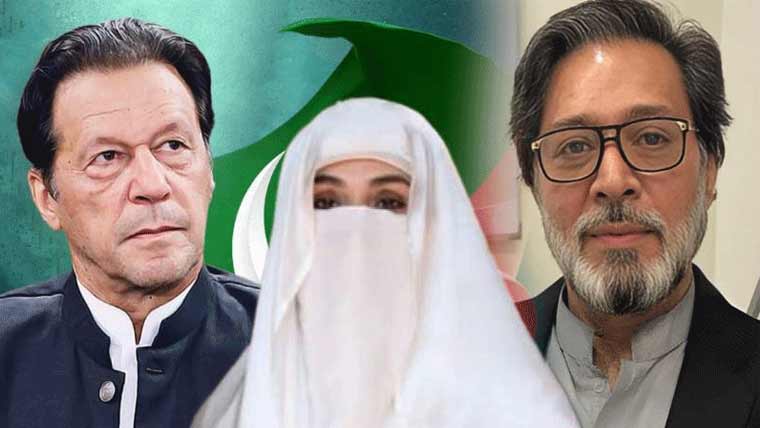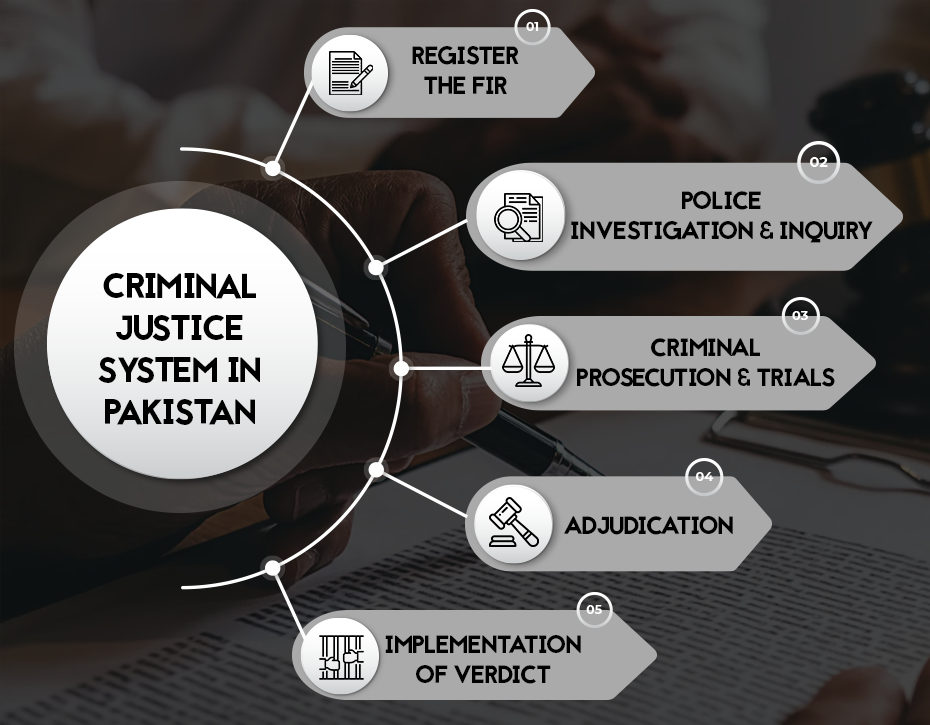By Tariq Mehmood Awan – How to Reform Police in Pakistan? (Part-I)
The Police is a body of officers embodying the civil authority of government. Police are usually responsible for maintaining public order and safety, enforcing the law, and preventing, detecting, and investigating criminal activities. These functions are known as policing. Hence, the Police is a civil law enforcement agency. Police are often also entrusted with various licensing and regulatory activities. Commonly, the Police are an integral part of the criminal justice system of a country and an enforceable force of law, rules and regulations. The legal competency of the Police is paramount for their conduct and operations. The lifeforce of law is the pivot across the Police perform its operations to regulate, perform and execute the law regimes of a country in a specific structural domain.
However, police critics have criticized this popular understanding of the word Police that it refers to members of a public organization having the legal competence to maintain order and enforce the law. They explain it for two fundamental reasons. First, it defines Police by their ends rather than by the means they use to accomplish their goals. Second, the assortment of situations in which Police are asked to intervene is much greater than in law enforcement and order maintenance. There is currently a concurrence among researchers, based on a definition first proposed by American sociologist Egon Bittner, that the standard feature among all the agencies engaged in policing is the legal competence to enforce coercive, non-negotiable measures to resolve problematic situations and circumstances. Such situations are characterized by their potential for harm and the need to solve them urgently before they develop the potential for lawlessness and anarchy. Hence, the actual use of coercion or the threat of utilizing it allows Police to put a quick, non-negotiated, and conclusive end to problematic situations.
Read more: https://republicpolicy.com/five-rules-of-civil-service-reforms-rule-1/
Following that definition, policing thus may be performed by several professional organizations: public police forces, private security agencies, the military, and government agencies with various surveillance and investigative powers. The best known of these bodies are the public police forces that patrol public spaces, often in marked cars, and whose members wear a uniform. They conduct operations, investigations and prosecution of civil crimes. They are the most visible representatives of the civil authority of government and provide the model typically associated with police organizations. Furthermore, security and intelligence agencies that generally operate undercover have played an increasingly substantial role in combating terrorism, especially since the September 11 attacks in the United States in 2001 and its subsequent fallout in Pakistan. Policing has become a complex assignment that straddles the traditional institutional and jurisdictional distinctions between public and private, criminal and political.
The Article shall dissect the reforming of the Police on five rules of civil service reforms. The five rules include the implementation of the constitution, ensuring structural alignment, cadre specialization, recoding the laws and improving terms and conditions of the police service. Police reforms in Pakistan have always been an eyewash. These often fail even before they start. Unfortunately, there are police monopolies in the administrative corridors of power, and politicians have yet to be able to dissect and lead the processes of police reforms. So far, all police reforms committees and commissions have been headed by the federal Police Service of Pakistan PSP.
Consequently, politicians depend upon civil servants’ craft in administration affairs and even reforming the services. The primary question is, who will reform the Police in Pakistan? Constitutionally, it is the mandate and obligation of the political executive to reform the Police, but this has never been the case. Politicians always empower the federal PSPs to reform police services, and the latter always uphold the colonial scheme of reserving provincial posts for central services. Therefore, the police reforms have only been restricted to changes in the functions of the Police, not structural changes in the Police. The existing scheme of reserving provincial posts for central services conflicts with constitutional federalism and the Provincial Civil Servants Acts. Consequently, the governments can only perpetrate the objectives of police reforms if independent constitutional and structural experts are empowered to reform the police services in place of federal PSPs. The primary and foremost question to reforming Police is who will reform the Police?
Read more: https://republicpolicy.com/five-rules-of-civil-service-reforms-rule-2/
Pakistan is a federal republic state. Thus Police reforms require fundamental constitutional alignment. The primary question is which government is constitutionally empowered to raise and maintain the police service? Furthermore, should Police be organized centrally or provincially? The administration of the Police is a provincial subject according to Article 70(4) and schedule IV of the constitution. Then, it requires clarity that there is a difference between law and order and the establishment of Police. The Police are one of the organs that implement the legal structures of law and order. Hence, several other national and provincial agencies are also competently employed to ensure law and order in the country. Law and order is a vast concept. It also comprises national and defence security mechanisms. Therefore, law and order contain multiple functions, and federal and provincial enforcement agencies may execute their operations. The essay is about the establishment of the Police and its functions. Chapter two of the constitution enforces policy principles under article 37 (i) to decentralize the administration to facilitate expeditious disposal of its business to meet the convenience and requirements of the public. Schedule IV of the constitution divides subjects between federation and provinces. It is the fundamental place where federal and provincial constitutional competence is determined. Neither legislation nor delegated legislation or policy legislation can be made repugnant to the divisions of powers enunciated in schedule IV of the constitution. The federal legislative list part I and II specifically explain the powers of the federation and council of common interests CCI. Neither law and order nor policing is a federal or common subject of CCI. Hence, law and order to the extent of civil domain and establishment of Police are purely provincial subjects. The FLL explicitly provides those parts of law and orders that federal law enforcement agencies can carry out.
As explained earlier, the Police is a provincial subject. Now, the other question arises which provincial department shall raise the establishment of a police force? Article 139 of the constitution empowers the provincial governments to construct and conduct their business of the provincial governments. It reads as follows;
Article 139. Conduct of business of Provincial Government.—
(1) All executive actions of the Provincial Government shall be expressed to be taken in the name of the Governor.
(2) The 2[Provincial Government] shall by rules specify the manner in which orders and other instruments made and executed 2[in the name of Governor] shall be authenticated, and the validity of any order or instrument so authenticated shall not be questioned in any Court on the ground that it was not made or executed by the Governor.
(3) The Provincial Government shall also make rules for the allocation and transaction of its business.
Accordingly, the provincial governments framed their rules of business to conduct the affairs of provincial governments. Provincial rules of business establish that Police are an integral part of the Home Department of a province. Hence, it creates that Police is not a department but a specialized agency of the Home Department. On top of it, schedule IV and Provincial rules of business conclude that Police is a provincial domain. To fetch the argument further, the Punjab Government Rules of Business, 2011 categorically places the establishment of Polic as an affair of a Home department. Section 13 of the rules of business, 2011 explains as follows;
(13) All matters connected to policing, including:
(a) Police establishments and their administration
(b) Police rules, and
(c) Police works
Schedule IV and Punjab Government Rules of Business, 2011 conclude that Police is a provincial constitutional entity. Yet, in consonance with the constitutional provisions, it is constitutionally required to raise police service provincially, not centrally. Hence, the best process for reforming the Police is to implement the constitution. Law and order and Police are provincial subjects. Article 240 (b) of the constitution empowers the provincial assembly to legislate provincial posts and services. The Punjab government rules of business, 2011 empower the province’s Home Department to raise provincial police service. However, against the constitutional scheme, the Police are organized centrally in the form of the Police service of Pakistan (PSP) without enactment and legal instruments. Therefore it is a constitutional obligation that the federal Police must work in the federal domain and all Pakistan police in the domain of CCI. Article 142 (b) talks about the concurrence of criminal law, evidence and criminal procedure. Then, this concurrence has nothing to do with establishing the Police as a provincial entity. Article 142(b), read with Article 142(c), establishes the legislative jurisdiction of concurrence and provincial domain. Then, the explanation clause in Article 240 to form an All Pakistan Service has nothing to do with the provincial Police. Through the forum of CCI, the federal government can create only All Pakistan police on common posts of common subjects in CCI. Hence, the reservation of posts connected with the affairs of a province for federal or all Pakistan service is unconstitutional as it creates legislative, executive and financial anomalies.
Read More: https://republicpolicy.com/five-rules-of-civil-service-reforms-rule-3/
Accordingly, the foremost requirement of police reforms is the creation of the Provincial Police Service (PPS) on posts connected with the affairs of the Home department. It is a constitutional obligation to align the post, cadre, service and subject of the exact government and the legislature in the federation of Pakistan. Furthermore, it is critical for executive alignment for the executive branch of the government. The law does not allow the maintenance of a Federal Police Service of Pakistan PSP on posts of the Provincial Home Department. How can provinces perform operations of policing where federal PSP officers are posted on provincial posts and not accountable to provincial political executives and law? Then, abolishing the class system in the police force is a structural requirement for the proficiency and career progression of police human resources. How can superior and inferior ranks form a joint police force? The Police should be organized at a lower level of recruitment and promoted systematically to the higher ranks without lateral entry or recruitment. This vertical mobility must have cadre alignment. Creating specialized cadres according to police functions is critical for the performance of police service. Although the other civil services need to have lateral entries, for the cadres of Police, lateral entries obstruct human resource management. Police are comparatively a specialized function and must have vertical growth of cadres. The General cadre of Police extends to federal and provincial tiers, including the specialties of investigation, operations, prosecution, administration, traffic, and other police organizations such as, telecommunication, Elite force, Institutions of Training wing, Special Protection Unit(SPU), Special Branch, Finger print Bureau, Punjab Highway Petrol, FIA, ANF, Motorway Police, IB etc. is the reason for inefficiency and administrative obstructions. Moreover, Policing does not mean showcasing managerial skills only for a general cadre but instead developing core operations, investigation, prosecution and administration skills for the specialized cadres. Is it justifiable to recruit a superior human resource only for administration, excluding the core matters of operations, investigation, and prosecution?
Policing is a devolved subject all over the world. Even it is devolved into the levels of districts. It is also equally important the Police is devolved from provinces to districts as it needs a devolution from federation to provinces.
Read More: https://republicpolicy.com/five-rules-of-civil-service-reform-rule-4/
Historically, in 1949, the federal executive authority framed the police cadre rules to create a central Police Service of Pakistan (PSP) without any act of the constituent assembly. Those rules had no legal basis. General Zia again tried to legalize the PSP through the police cadre rules of 1985. Police kingpins quote the saving clause of Article 241 of the constitution to protect their service. Still, the Article provides them with no such protection as the police service never existed legally through an act of parliament. Even the central legislature could not have passed for want of legislative competence, the Police being a provincial subject.
Strangely enough, for their reform agenda, the Police prefer the laws of Zia and Musharraf or resort to judicial forums when convenient.
What the police elite want is that their service should be central so that the provincial government may not take disciplinary action against their officers for misconduct. Second, the police elite wants complete control and authority over their officers’ transfer and postings. Suppose the provincial executive would neither have a say in the transfer and posting nor would it be able to suspend or dismiss a police officer for misconduct. Why would it retain the Police as a provincial force?
Let’s understand the class system of Police in Pakistan! Police officers want the security of tenure for the positions of SP to IG, which is a good idea for service delivery. However, in the same breath, they oppose the security of tenure for SHOs. They transfer soft SHOs monthly – though legally speaking, only an SHO has legal powers under the law, and all other officers’ functions are supervisory.
Read more: https://republicpolicy.com/five-rules-of-civil-service-reforms-rule-5-concluded/
The institution of the police station, which is the linchpin of the whole system, has been made redundant by the police bureaucracy. It needs a budget and independence for the required service delivery. Although the governments give the Police billions of annual budget, the third most significant outlay is after education and health. Even if a few million is allocated for each police station, it would cost only a few billion for the majority of police stations in provinces to make their model service centres. The budget spending is the same in all provinces. There is no scrutiny of the budgeting of Police in all the provinces. Equitable resource mobilization in the Police is critical for policing. Police reforms do not mean only to enhance the perks and privileges of the senior officers, as has been the case, but to improve the structures of the Police.
Referring to case law, in the Sindh High Court, the petitioners quoted extensively from a 2006 Parkash Singh case of the Indian Supreme Court, which asked provinces to enact A Model Police Act by their consent. Even in India, under the Model Act promulgated by some states, the director general of Police who heads the Police in a province is appointed by state governments without any interference from the central government, and provincial governments exercise complete executive authority over the Police. Hence, India is a union, not a federation and that too with a concurrent list. Pakistan is a federation without a concurrent list of policing. 142(b) is not about policing in the whole scheme of the constitution. How can a federation appoint an Inspector General of Police in a province?
Furthermore, so-called reform agendas never aimed at depoliticizing Police but rather making the Police unaccountable and a state within a state.
The constitution is the supreme organ of a state. The law and order and establishment of Police are provincial subject; how can federal legislative and executive authority affect a provincial matter after the 18th amendment? After abolishing the concurrent list, the council of common interests became common between the federation and provinces. CCI holds control of the federal legislative list part II as the latter has 18 exclusive powers according to federal legislative list part II. The federal government, through CCI, can only raise common or all Pakistan services among the common subjects of CCI. Hence, the existing scheme of Police is unconstitutional, and the creation of Provincial Police on posts connected with the affairs of a province is the only constitutional solution towards effective policing and people accountability.
To be continued.
Part II: https://republicpolicy.com/how-to-reform-police-in-pakistan-part-ii/














